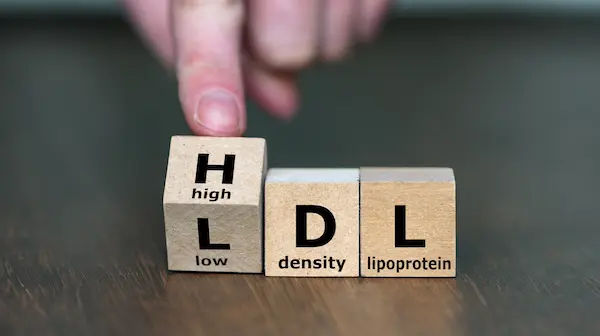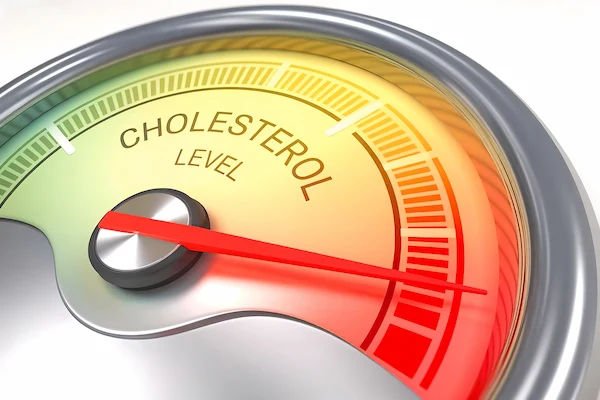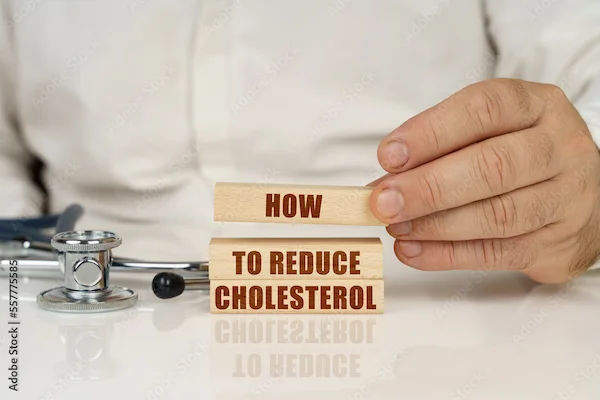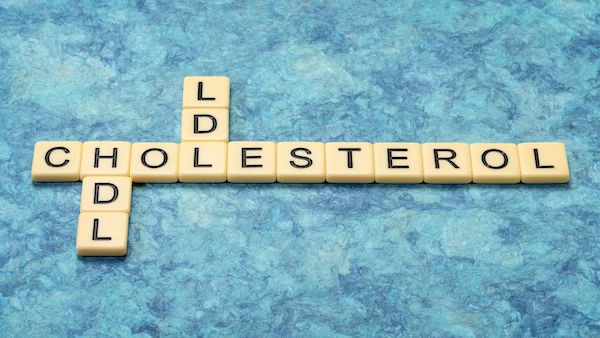10 Powerful Ways to Lower High Cholesterol Naturally
Know about the effective ways to lower high cholesterol, types of cholesterol, what it is, and good foods for good cholesterol, causes and lifestyle modifications and more.

Written by Dr. Vasanthasree Nair
Reviewed by Dr. J T Hema Pratima MBBS, Fellowship in Diabetes Mellitus
Last updated on 13th Jan, 2026

Introduction
Hearing you have high cholesterol can be a worrying wake-up call. It’s a silent condition with no symptoms, but it significantly increases your risk of heart disease and stroke. The good news? For most people, it’s highly manageable and even reversible through strategic lifestyle changes. This isn’t about a short-term diet; it’s about embracing a sustainable, heart-healthy lifestyle. This comprehensive guide will walk you through the most effective, evidence-based ways to reduce high cholesterol, from the food on your plate to your daily habits, empowering you to take control of your cardiovascular health.
Understanding Cholesterol: The Good, The Bad, and The Essential
Before we tackle how to lower it, it's crucial to understand what cholesterol is and why it matters.
What Exactly is Cholesterol?
Cholesterol is a waxy, fat-like substance found in every cell of your body. It's not inherently evil; your liver actually produces it to build cells and make vitamins and other hormones. The problem arises when we get too much of the wrong kind from our diets, leading to a buildup in our arteries.
Consult a Cardiologist for Personalised Advice
LDL Cholesterol: The "Bad" Guy
Low-Density Lipoprotein (LDL) cholesterol is often called "bad" cholesterol. It transports cholesterol particles throughout your body. When you have too much LDL, it can build up on the walls of your arteries, making them hard and narrow. This process, called atherosclerosis, is a primary driver of heart attacks and strokes.
HDL Cholesterol: The "Good" Guy
High-Density Lipoprotein (HDL) cholesterol is the "good" cholesterol. It acts like a scavenger, picking up excess cholesterol in your bloodstream and carrying it back to your liver, where it's flushed from the body. Higher levels of HDL can help protect against heart disease.
What Causes High Cholesterol Levels?
Several factors contribute to high cholesterol levels, including a diet high in saturated and trans fats, a lack of physical activity, smoking, being overweight, and genetics (a condition called familial hypercholesterolemia). Age and diabetes also play a role. Understanding your personal risk factors is the first step toward crafting an effective management plan.
Your Diet Makeover: The Most Effective Foods to Fight High Cholesterol
Diet is your most powerful weapon in the fight against high cholesterol. It’s not about eating less, but about eating smarter.
Embrace Soluble Fibre: Oats, Barley, and Legumes
Soluble fibre is a superstar for lowering LDL cholesterol. It dissolves in water to form a gel-like material in your gut that binds to cholesterol particles and removes them from your body before they enter your bloodstream.
Examples: Start your day with a bowl of oatmeal or oat bran. Incorporate barley into soups and stews. Enjoy legumes like kidney beans, lentils, and chickpeas several times a week. Other great sources include apples, pears, and Brussels sprouts.
Healthy Fats are Your Friend: Nuts, Avocados, and Olive Oil
Replacing unhealthy fats (saturated and trans fats) with healthy unsaturated fats is key. Studies show that diets rich in monounsaturated and polyunsaturated fats improve blood cholesterol levels and overall cardiovascular health.
Examples: A handful of almonds, walnuts, or other nuts most days. Use avocado as a spread instead of butter. Cooking with olive oil or canola oil instead of lard or shortening.
The Power of Omega-3s: Fatty Fish and Flaxseeds
Omega-3 fatty acids don't lower LDL cholesterol, but they have significant heart health benefits, including reducing triglycerides and raising HDL slightly. They also help reduce blood pressure and the risk of developing blood clots.
Examples: Aim for two servings of fatty fish per week, such as salmon, mackerel, herring, or tuna. For plant-based options, grind flaxseeds and add them to yoghurt or smoothies, or consider chia seeds and walnuts.
Foods to Limit or Avoid for Better Cholesterol
To see real change, you must also cut back on the culprits that raise cholesterol.
Saturated Fats: Found in red meat, full-fat dairy products (butter, cream, cheese), and baked goods. Choose lean cuts of meat and low-fat dairy.
Trans Fats: Listed on labels as "partially hydrogenated oils," these are found in margarine, store-bought cookies, crackers, and fried foods. They are doubly harmful, raising LDL and lowering HDL. Avoid them completely.
Beyond the Plate: Lifestyle Changes for Optimal Cholesterol Levels
What you do outside the kitchen is just as important as what you put in it.
Get Moving: The Best Exercises for Lowering Cholesterol
Physical activity is a proven way to raise HDL (good) cholesterol. It helps move cholesterol to your liver to be removed from the body. Aerobic exercise is particularly effective.
Recommendation: Aim for at least 30 minutes of moderate-intensity exercise (like brisk walking, swimming, or cycling) five times a week. Even better, incorporate high-intensity intervals or add strength training twice a week, as building muscle helps boost your metabolism and manage weight.
Weight Management: How Shedding Pounds Improves Your Numbers
Carrying extra weight contributes to high cholesterol. Losing even 5-10% of your body weight can dramatically improve your cholesterol readings. Weight loss helps lower LDL and triglycerides while boosting HDL. It’s about making consistent, small changes that lead to sustainable loss.
Quit Smoking: A Critical Step for Heart Health
If you smoke, quitting is perhaps the single fastest way to improve your heart health. Smoking damages the walls of your blood vessels, making them more prone to accumulating fatty deposits. It also lowers your HDL cholesterol. Within just 20 minutes of quitting, your blood pressure and heart rate recover from the cigarette-induced spike. Within a year, your risk of heart disease is half that of a smoker's.
When Lifestyle Isn't Enough: Understanding Medical Options
For some individuals, particularly those with a genetic predisposition, lifestyle changes may not be sufficient to reach target cholesterol levels. This is where medicine plays a vital role.
Common Cholesterol-Lowering Medications (Statins)
Statins are the most commonly prescribed cholesterol-lowering medications. They work by blocking a substance your liver needs to make cholesterol, which causes your liver to remove cholesterol from your blood. They are highly effective at lowering LDL and reducing the risk of heart attack and stroke. Other options include bile-acid-binding resins, cholesterol absorption inhibitors, and PCSK9 inhibitors. It's essential to discuss the benefits and risks of any medication with your doctor.
The Role of Regular Monitoring and Blood Tests
You can’t manage what you don’t measure. A simple lipid profile blood test is needed to check your cholesterol levels. If you are making lifestyle changes or are on medication, your doctor will recommend regular testing to monitor your progress and adjust your plan as needed. Apollo24|7 offers convenient home collection for lipid profile tests, making it easy to keep track of your numbers from the comfort of your home.
Conclusion
Managing high cholesterol is a marathon, not a sprint. It requires a commitment to a holistic approach that combines a heart-smart diet, consistent physical activity, and other healthy lifestyle choices. By understanding the role of LDL and HDL cholesterol and implementing the powerful strategies outlined in this article—from loading up on soluble fibre to quitting smoking—you can take profound steps toward protecting your long-term health. Remember, these changes are not about deprivation but about embracing a richer, more vibrant lifestyle. Be patient with yourself, celebrate small victories, and keep your eyes on the ultimate prize: a healthy heart for years to come. If you've made these changes and your numbers aren't budging, it's time to seek professional guidance.
Consult a Cardiologist for Personalised Advice
Consult a Cardiologist for Personalised Advice

Dr. Sumanjita Bora
Cardiologist
9 Years • MBBS, PGDCC
Bengaluru
Apollo Clinic, Sarjapur Road, Bengaluru

Dr. Anand Ravi
General Physician
2 Years • MBBS
Bengaluru
PRESTIGE SHANTHINIKETAN - SOCIETY CLINIC, Bengaluru

Dr. Zulkarnain
General Physician
2 Years • MBBS, PGDM, FFM
Bengaluru
PRESTIGE SHANTHINIKETAN - SOCIETY CLINIC, Bengaluru

Dr. Ramalinga Reddy
General Physician
5 Years • MBBS MD General medicine
Bengaluru
PRESTIGE SHANTHINIKETAN - SOCIETY CLINIC, Bengaluru
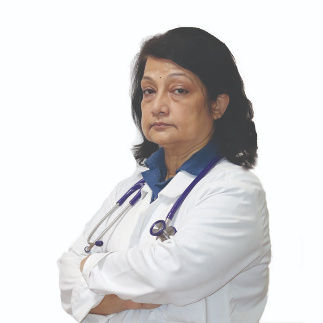
Dr. Tripti Deb
Cardiologist
40 Years • MBBS, MD, DM, FACC, FESC
Hyderabad
Apollo Hospitals Jubilee Hills, Hyderabad
More articles from Cholesterol
Frequently Asked Questions
1. What are the symptoms of high cholesterol?
High cholesterol itself has no symptoms. It’s a 'silent' condition that doesn't make you feel sick. The only way to detect it is through a blood test. Often, the first 'symptom' is a serious event like a heart attack or stroke, which is why regular screening is so important.
2. Can I eat eggs if I have high cholesterol?
For most people, moderate egg consumption (up to one whole egg per day) is considered safe and does not significantly impact blood cholesterol levels in the same way that saturated and trans fats do. The focus should be on your overall diet pattern rather than a single food.
3. How quickly can I lower my cholesterol with diet and exercise?
You can see improvements in your cholesterol levels within just a few weeks to three months of making sustained dietary and exercise changes. However, everyone is different, and the extent of change depends on the individual and the consistency of their efforts.
4. Are there any natural supplements to lower cholesterol?
Some supplements like psyllium husk (a soluble fiber), plant sterols/stanols, and omega-3 fatty acids (fish oil) have evidence supporting their role in lowering LDL cholesterol naturally. However, you should always talk to your doctor before starting any supplement, as they can interact with medications.
5. What is a healthy cholesterol level?
A healthy total cholesterol level is generally under 200 mg/dL. However, doctors look at the breakdown:
LDL ('bad' cholesterol): Less than 100 mg/dL is optimal.
HDL ('good' cholesterol): 60 mg/dL or higher is considered protective.
Triglycerides: Less than 150 mg/dL is desirable.
Your doctor will determine your personal targets based on your overall health and risk factors.
